Healthcare Pathways Camp
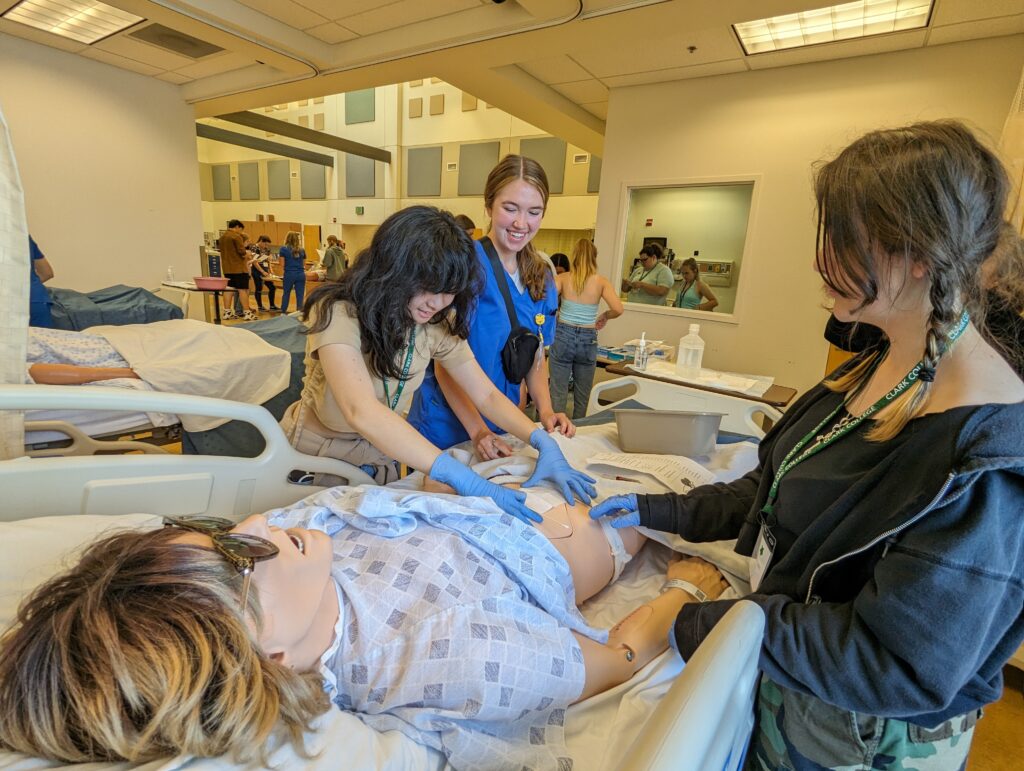
Clark College hosted its first-ever Healthcare Pathways Camp for more than 70 local middle and high school students on June 21-23. There was no cost for any students to participate in the camp. Funding for the camp was provided by Guided Pathways, Clark College Foundation, and Career Connect Washington. Breakfast, lunch, snacks, and drinks were provided, along with a Clark T-shirt.
Classes and activities took place on Clark’s main campus and in the Clark College Building at Washington State University Vancouver which houses the majority of Clark’s healthcare programs. Students participated in hands-on healthcare and teambuilding activities with Clark professors and staff, current students, and recent graduates. Each group of campers was teamed up with a Clark student ambassador who is successfully pursuing a degree and could offer advice about becoming a college student.
Learning by doing
Each student camper had the opportunity to experience all of Clark’s healthcare programs:
- Dental Hygiene
- Emergency Medical Technician (EMT)
- Health Information Management and Medical Billing and Coding
- Medical Assisting
- Nursing
- Pharmacy Technician
- Phlebotomy Tech
“We’re really getting an opportunity to showcase all of Clark’s healthcare programs by providing hands-on experiences with our professors,” said Professor Olga Lyubar, lead organizer of the camp. She is the department head for Clark’s Health Information Management program. “It’s about opening up their minds to consider their future path. Many of these students are just starting to think about what they want to do in their careers.”
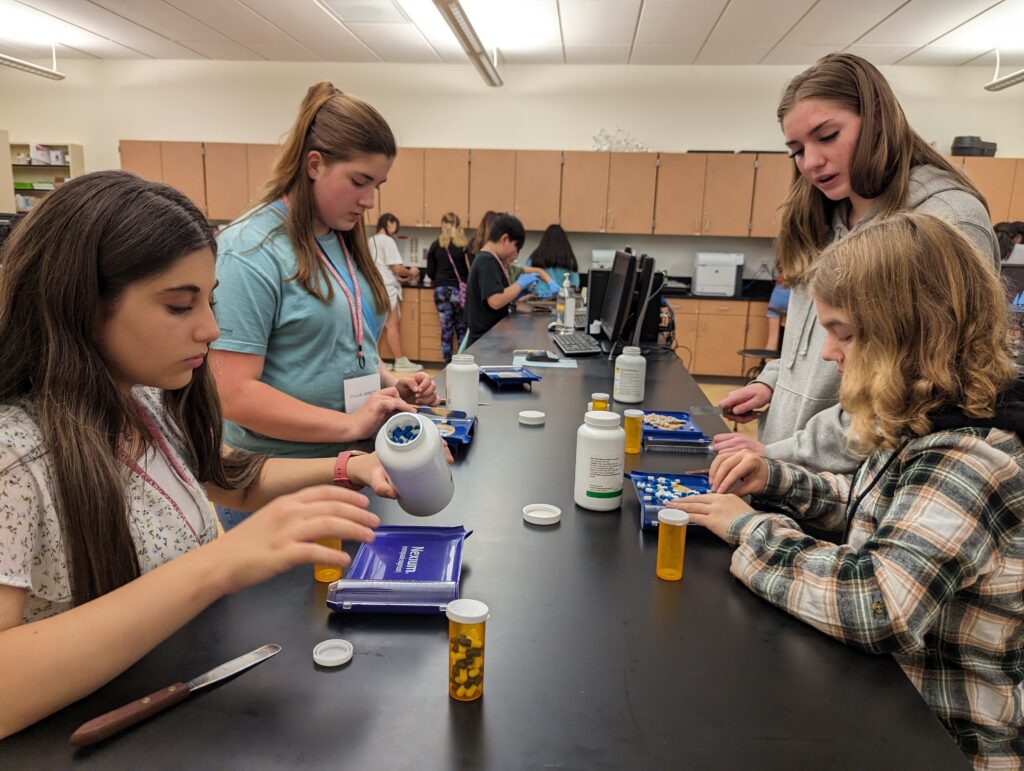
Just a week after Ellie Wetzel, above second from right, graduated from Clark’s two-year pharmacy technician program, she stood in the pharmacy tech lab and taught a group of middle and high school students how to count pill blanks. As they worked, students asked her questions.
A student looked up from counting and asked, “When you go to a pharmacy, which person helps people at the counter?”
Ellie answered, “The person at the pharmacy counter is the pharmacy technician, like me. We count the pills and help customers. Then the pharmacist checks our work before we dispense them.”
That led to a discussion about Clark’s pharmacy tech program and career opportunities in the field.
All around the lab, students completed other tasks including drawing up immunizations and compounding a suspension.
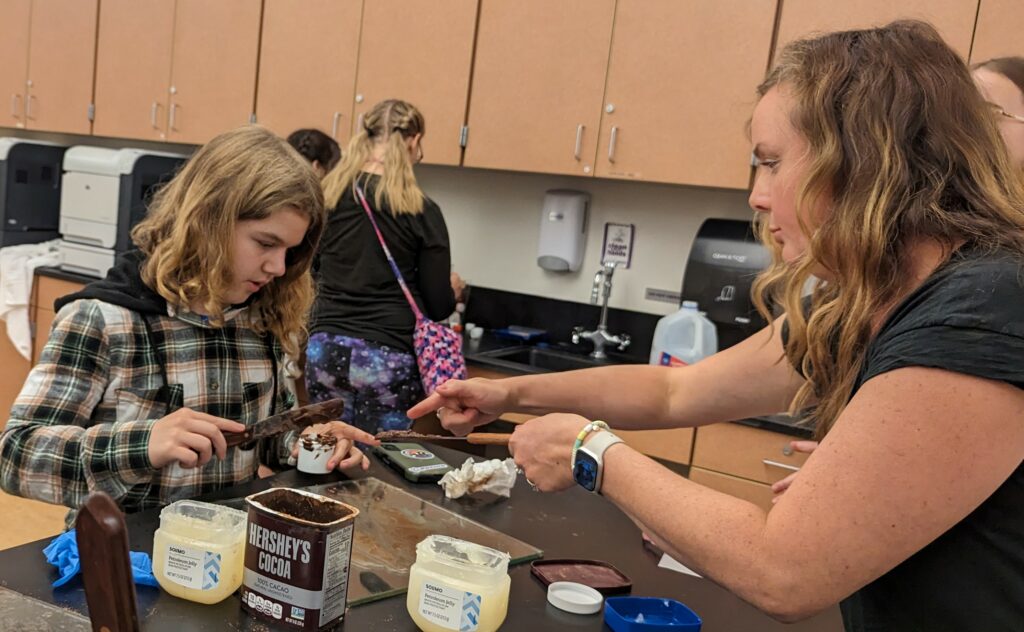
Professor Heidi Fay, above right, lead instructor of the Pharmacy Technician program, led the students in compounding a simulated ointment made from unsweetened cocoa powder and petroleum jelly. The students used spatulas with long blades to mix the two ingredients and smooth them into the ointment. The smell of chocolate wafted over the counter where students worked.
A student who was compounding the ointment commented,” Smells like chocolate. Can I taste it?”
Professor Fay replied, “No. It’s unsweetened cocoa and Vaseline. It will not taste good.” The student accepted her answer and kept working.
“I was thrilled to be able to offer so many students the opportunity to see what different pharmacy technician tasks look like,” said Professor Fay. “We often think of pharmacy technicians as only ‘counting pills,’ but pharmacy technicians can complete a wide variety of tasks and work in so many different pharmacy settings. I felt great leaving the camp knowing students were able to learn more about this important healthcare career.”
Down the hall in the phlebotomy lab, Professor Lori Anderson sat next to a student and guided him in inserting a needle into a vein on a simulated arm. Throughout the process, she offered instruction and encouragement.
As the class ended and students prepared to leave, Professor Anderson asked, “Thank you for joining us. So, what do you think about phlebotomy? Is it something you might want to do? I hope it will help you determine your career path. Working in phlebotomy is a great stepping stone to other healthcare careers and a great way to support yourself while you’re going to school.”
In the medical assisting lab, some students were working on applying temporary casts while others removed surgical staples from an artificial arm and practiced taking vital signs.
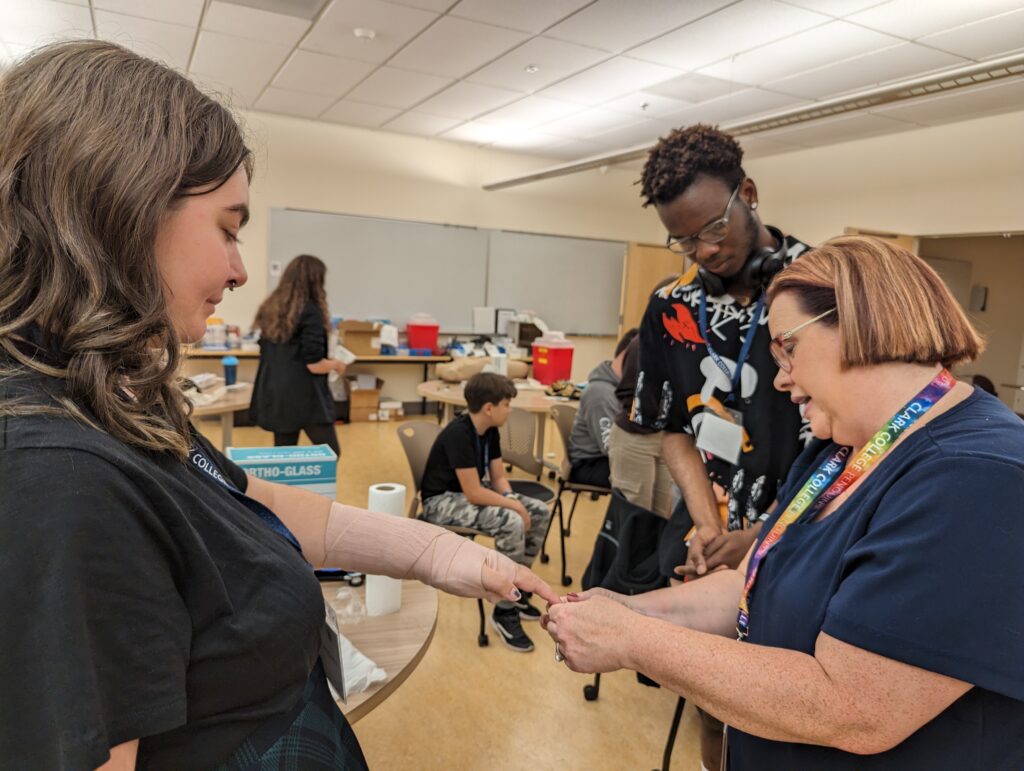
Professor Sarah Kuzera, above right, observed a student applying temporary casting material around another student’s forearm. Then Professor Kuzera asked the “patient” to straighten out her fingers. She pointed out the importance of leaving the fingers free to not hinder blood circulation and to allow the patient to have use of their fingers.
As Professor Kuzera watched a student holding temporary casting material under a faucet, she advised, “That’s way too wet! Squeeze out the water and it will work better.”
She explained that graduates of Clark’s medical assisting program have an impressive job placement rate. She credits this to the program’s thorough hands-on training, including a required 160-hour clinical externship.
In the Nursing simulation lab, groups of students gathered around Siman, an interactive, programmable patient to learn about when and how to perform cardiopulmonary resuscitation, or CPR. Another group of students gathered around beds and performed wound care on other simulated patients.
Nursing Professor Bo Li observed, “Some students are really curious. They want to know all the details about the pathway to becoming a nurse.”
On the final day of camp, panelists from the community who currently are working in healthcare fields offered at Clark College talked about their education, why they chose their field, and what a typical work day looks like.
Then students attended workshops focused on how to apply to college, career choices, financial aid, and how to succeed in college.
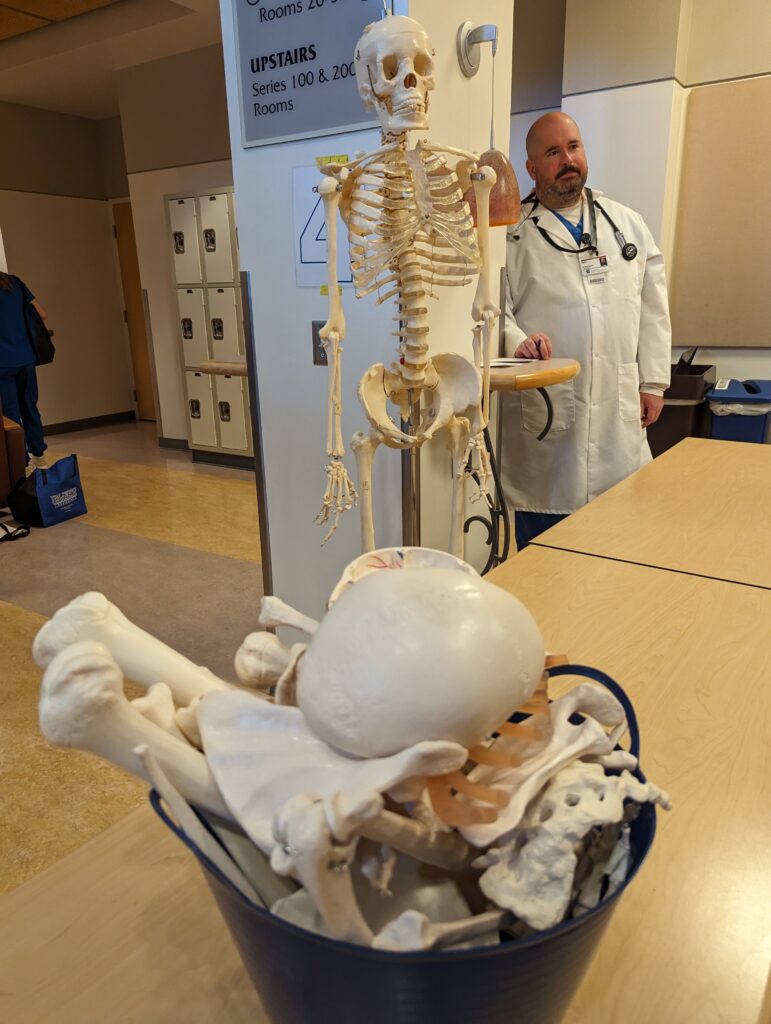
Clark College plans to host Healthcare Pathways Camp again next year.
The healthcare industry continues to be a top employer in SW Washington in terms of number of jobs and growth potential,” said Rhianna Johnson, director of Guided Pathways and Partnerships. “At the heart of Guided Pathways is the goal of helping students successfully navigate the journey that leads to high-wage, in-demand careers that will support economic mobility and long-term job security.
Guided Pathways funding supports opportunities like the Healthcare Pathways Camp to ensure that all potential students have access to information and experiences that will help them make positive career choices and challenge stereotypes about who can benefit from jobs in the healthcare field.”
Photos: Clark College/Susan Parrish